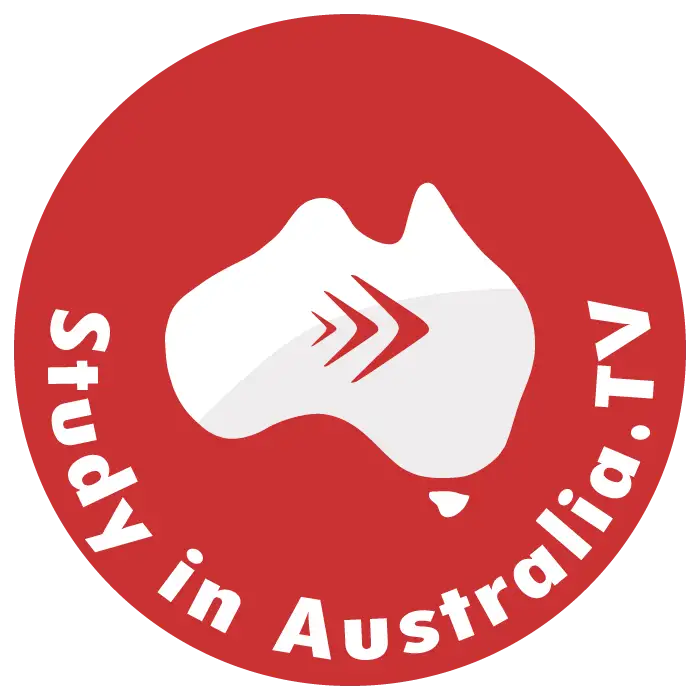Einwanderungsbeauftragter (ANZSCO 599512)
Die Einwanderung nach Australien ist für viele Menschen ein Traum, die bessere Chancen und eine hohe Lebensqualität suchen. Der Einwanderungsprozess kann jedoch komplex sein und erfordert eine sorgfältige Planung und Vorbereitung. Dieser Artikel dient als umfassender Leitfaden zur Einwanderung nach Australien und bietet detaillierte Informationen zum Antragsverfahren, den Visumoptionen und den Zulassungsvoraussetzungen. Ganz gleich, ob Sie eine Fachkräftemigration, eine Familienförderung oder eine Geschäftsinnovation in Betracht ziehen, dieser Artikel hilft Ihnen dabei, sich im Einwanderungsprozess zurechtzufinden und fundierte Entscheidungen zu treffen.
Den Einwanderungsprozess verstehen
Der Einwanderungsprozess nach Australien umfasst mehrere Schritte und erfordert sorgfältige Überlegungen. Bewerber müssen den Prozess verstehen, um eine reibungslose und erfolgreiche Bewerbung zu gewährleisten. Hier sind die wichtigsten Schritte im Einwanderungsprozess:
- Forschung und Planung
- Eignungsbewertung
- Erforderliche Dokumente zusammenstellen
- Einreichen des Antrags
- Medizinische und Charakterbeurteilung
- Visa-Entscheidung und -Gewährung
Bevor Sie mit dem Einwanderungsprozess beginnen, ist es wichtig, eine gründliche Recherche über Australiens Einwanderungspolitik, Visaoptionen und Zulassungsvoraussetzungen durchzuführen. Diese Recherche wird Ihnen dabei helfen, den für Ihre Umstände am besten geeigneten Visumweg zu ermitteln.
Sobald Sie den Visumweg identifiziert haben, müssen Sie Ihre Berechtigung anhand der spezifischen Anforderungen der australischen Regierung beurteilen. Für jede Visumkategorie gelten unterschiedliche Kriterien in Bezug auf Alter, Fähigkeiten, Qualifikationen, Berufserfahrung und Englischkenntnisse.
Nachdem Sie Ihre Berechtigung festgestellt haben, müssen Sie die erforderlichen Dokumente zur Unterstützung Ihres Visumantrags zusammenstellen. Zu diesen Dokumenten können Bildungsnachweise, Beschäftigungsunterlagen, Finanzberichte, Ausweisdokumente und Nachweise über Englischkenntnisse gehören.
Sobald Sie alle erforderlichen Dokumente zusammengetragen haben, können Sie mit der Einreichung Ihres Visumantrags fortfahren. Der Antrag kann online über die offizielle Website des Innenministeriums eingereicht werden. Es ist von entscheidender Bedeutung, genaue und vollständige Informationen bereitzustellen, um Verzögerungen oder Ablehnungen zu vermeiden.
Im Rahmen des Einwanderungsprozesses müssen Sie sich ärztlichen Untersuchungen unterziehen und eine Personenbescheinigung vorlegen. Diese Beurteilungen stellen sicher, dass Sie die von der australischen Regierung festgelegten Gesundheits- und Charakteranforderungen erfüllen.
Nachdem Sie Ihren Antrag eingereicht haben, wird dieser vom Innenministerium geprüft. Die Bearbeitungszeit variiert je nach Visumkategorie und individuellen Umständen. Sobald eine Entscheidung getroffen wurde, werden Sie über das Ergebnis informiert und im Erfolgsfall wird Ihnen das Visum erteilt.
Visaoptionen für die Einwanderung nach Australien
Australien bietet eine Reihe von Visaoptionen für Personen, die in das Land einwandern möchten. Die Visumkategorien sind so konzipiert, dass sie den unterschiedlichen Umständen und Anforderungen gerecht werden. Hier sind einige der wichtigsten Visumoptionen für die Einwanderung nach Australien:
Kompetente Migration
– Unabhängiges Fachkräftevisum (Unterklasse 189): Dieses Visum ist für Fachkräfte bestimmt, die nicht von einem Arbeitgeber, Staat oder Territorium gefördert werden. Es ermöglicht Einzelpersonen, überall in Australien dauerhaft zu leben und zu arbeiten.
- Nominiertes Visum für Fachkräfte (Unterklasse 190): Dieses Visum erfordert die Nominierung durch eine Landes- oder Territorialregierung. Es bietet Fachkräften, die bereit sind, in einem bestimmten Staat oder Gebiet zu leben und zu arbeiten, eine dauerhafte Aufenthaltsgenehmigung.
- Regionales (vorläufiges) Visum für qualifizierte Arbeit (Unterklasse 491): Dieses Visum ist für qualifizierte Arbeitskräfte gedacht, die von einer Landes- oder Territorialregierung nominiert oder von einem berechtigten Familienmitglied mit Wohnsitz in einem bestimmten regionalen Gebiet unterstützt werden. Es bietet den Weg zu einer dauerhaften Aufenthaltsgenehmigung nach einer bestimmten Zeit.
Familienpatenschaft
- Partnervisum (Unterklassen 820 und 801): Dieses Visum ermöglicht es Einzelpersonen, ihrem australischen Partner oder Ehepartner nachzuziehen. Es erfordert eine echte und dauerhafte Beziehung.
- Elternvisum (Unterklassen 103, 143, 173, 804 und 864): Diese Visa gelten für Eltern australischer Staatsbürger, Personen mit ständigem Wohnsitz oder berechtigte neuseeländische Staatsbürger. Sie ermöglichen Eltern, vorübergehend oder dauerhaft in Australien zu leben.
- Kindervisum (Unterklassen 101, 102, 445 und 802): Diese Visa gelten für unterhaltsberechtigte Kinder australischer Staatsbürger, Personen mit ständigem Wohnsitz oder berechtigte neuseeländische Staatsbürger. Sie ermöglichen Kindern, vorübergehend oder dauerhaft in Australien zu leben.
Geschäftsinnovations- und Investitionsprogramm
- Visum für Unternehmensinnovation und -investitionen (vorläufig) (Unterklasse 188): Dieses Visum richtet sich an Personen, die in Australien ein neues oder bestehendes Unternehmen gründen, entwickeln oder leiten möchten. Es erfordert die Nominierung durch eine Landes- oder Territorialregierung.
- Business Talent (Permanent) Visum (Unterklasse 132): Dieses Visum richtet sich an hochkarätige Geschäftsinhaber oder Unternehmer, die bereit sind, in ein zu investierenneues oder bestehendes Geschäft in Australien. Es erfordert eine Nominierung durch eine Landes- oder Territorialregierung oder Austrade.
Nominierung für Bundesstaaten und Territorien
- Jeder Bundesstaat und jedes Territorium in Australien verfügt über ein eigenes Nominierungsprogramm, das es ihm ermöglicht, Fachkräfte zu nominieren, die seinen spezifischen Anforderungen entsprechen. Diese Programme sind auf die Kategorien qualifizierter Migrationsvisa abgestimmt und bieten zusätzliche Punkte und eine vorrangige Bearbeitung.
Kompetente Migration
Die Migration qualifizierter Fachkräfte ist einer der häufigsten Wege für Personen, die nach Australien einwandern möchten. Ziel ist es, den Fachkräftemangel im Land zu beheben und hochqualifizierte Fachkräfte anzuziehen. Hier finden Sie eine Übersicht über den Migrationsprozess für Fachkräfte:
Fähigkeitsbewertung
Vor der Beantragung eines Fachkräfte-Migrationsvisums müssen sich Antragsteller einer Kompetenzbewertung durch eine zuständige Beurteilungsbehörde unterziehen. Die Beurteilungsbehörde bewertet die Qualifikationen, Berufserfahrung und Fähigkeiten des Bewerbers, um sicherzustellen, dass er die erforderlichen Standards für seinen nominierten Beruf erfüllt.
Interessenbekundung (EOI)
Nach Erhalt einer positiven Kompetenzbewertung müssen Bewerber eine Interessenbekundung (EOI) über das SkillSelect-System einreichen. Der EOI gibt Auskunft über die Fähigkeiten, Qualifikationen und Berufserfahrung des Bewerbers. Außerdem wird angegeben, an welcher Visa-Unterklasse sie interessiert sind.
Punktetest
Einwanderungsvisa für Fachkräfte unterliegen einer Punkteprüfung, d. h. Antragsteller müssen eine Mindestpunktzahl erreichen, um berechtigt zu sein. Die Punktevergabe basiert auf Faktoren wie Alter, Englischkenntnisse, Qualifikationen, Berufserfahrung und anderen relevanten Kriterien.
Einladung zur Bewerbung
Sobald ein EOI eingereicht wurde, können Bewerber aufgefordert werden, ein Visum für die Einwanderung qualifizierter Personen zu beantragen, wenn sie die Mindestpunktzahl erfüllen und ihr Beruf gefragt ist. Einladungen werden regelmäßig auf der Grundlage der Anzahl der verfügbaren Visumplätze und der höchstrangigen EOIs ausgestellt.
Visumantrag
Nach Erhalt der Einladung haben Antragsteller eine bestimmte Frist, um ihren Visumantrag einzureichen. Der Antrag muss alle erforderlichen Dokumente enthalten, wie z. B. Ausweisdokumente, Ergebnisse der Kompetenzbewertung, Ergebnisse von Englischtests sowie Gesundheits- und Charakterfreigaben.
Visa-Entscheidung und -Gewährung
Das Innenministerium prüft den Visumantrag und trifft eine Entscheidung. Wenn der Antrag genehmigt wird, erhält der Antragsteller ein Visum zum Leben und Arbeiten in Australien. Das Visum kann je nach Unterklasse für einen vorübergehenden oder dauerhaften Zeitraum erteilt werden.
Es ist wichtig zu beachten, dass der Prozess der Fachkräftemigration wettbewerbsintensiv sein kann und die Erfüllung der Mindestanforderungen keine Garantie für eine Einladung oder Visumgenehmigung darstellt. Bewerber mit höheren Punkten und stark nachgefragten Berufen haben bessere Erfolgschancen.
Familienpatenschaft
Familienpatenschaft ist eine Möglichkeit für Personen, deren nahe Verwandte in Australien leben. Es ermöglicht ihnen, zu ihren Familienmitgliedern zu ziehen und dauerhaft oder vorübergehend im Land zu leben. Hier sind die wichtigsten Optionen für Familienpatenschaftsvisa:
Partnervisum
Das Partnervisum ermöglicht es Einzelpersonen, ihrem australischen Partner oder Ehepartner nachzuziehen. Es steht Personen in echten und dauerhaften Beziehungen zu australischen Staatsbürgern, Personen mit ständigem Wohnsitz oder berechtigten neuseeländischen Staatsbürgern zur Verfügung. Das Visum wird in zwei Stufen erteilt: befristet und dauerhaft.
Elternvisum
Elternvisa gelten für Eltern australischer Staatsbürger, Personen mit ständigem Wohnsitz oder berechtigte neuseeländische Staatsbürger. Es stehen mehrere Unterklassen zur Verfügung, darunter das Visum für beitragspflichtige Eltern und das Visum für ältere Eltern. Mit diesen Visa können Eltern vorübergehend oder dauerhaft in Australien leben.
Kindervisum
Kindervisa gelten für unterhaltsberechtigte Kinder australischer Staatsbürger, Personen mit ständigem Wohnsitz oder berechtigte neuseeländische Staatsbürger. Das Visum ermöglicht es Kindern, je nach Unterklasse vorübergehend oder dauerhaft in Australien zu leben.
Familienpatenschaftsvisa erfordern die Patenschaft eines berechtigten Familienmitglieds und die Erfüllung spezifischer Anforderungen in Bezug auf die Beziehung, das Alter und die Abhängigkeit.
Geschäftsinnovations- und Investitionsprogramm
Das Business Innovation and Investment Program (BIIP) soll Geschäftsinhaber, Unternehmer und Investoren nach Australien locken. Es bietet eine Reihe von Visumoptionen für Personen, die daran interessiert sind, im Land ein Unternehmen zu gründen, zu entwickeln oder zu leiten. Hier sind die wichtigsten Visumoptionen im Rahmen des BIIP:
Visum für Unternehmensinnovation und Investitionen (vorläufig) (Unterklasse 188)
Dieses Visum richtet sich an Personen, die in Australien ein neues oder bestehendes Unternehmen gründen, entwickeln oder leiten möchten. Es erfordert die Ernennung durch eine Landes- oder Territorialregierung und wird für einen vorläufigen Zeitraum gewährt.
Business Talent (Permanent) Visum (Unterklasse 132)
Dieses Visum ist für hochkarätige PersonenGeschäftsinhaber oder Unternehmer, die bereit sind, in ein neues oder bestehendes Unternehmen in Australien zu investieren. Es erfordert die Nominierung durch die Regierung eines Bundesstaats oder Territoriums oder Austrade und gewährt einen dauerhaften Wohnsitz.
Das BIIP bietet Wege für Personen mit unterschiedlichem Geschäftshintergrund und unterschiedlichen Investitionskapazitäten. Für jede Visumunterklasse gelten spezifische Anforderungen in Bezug auf Investmentfonds, Geschäftserfahrung und Geschäftspläne.
Nominierung für Bundesstaaten und Territorien
Die Regierungen der Bundesstaaten und Territorien in Australien verfügen über Nominierungsprogramme, die es ihnen ermöglichen, Fachkräfte zu nominieren, die ihren spezifischen Anforderungen entsprechen. Durch die Nominierung von Staaten und Territorien können qualifizierten Einwanderungsvisumanträgen zusätzliche Punkte und eine vorrangige Bearbeitung gewährt werden. Hier sind die wichtigsten Aspekte der Nominierung für Bundesstaaten und Territorien:
Zulassungskriterien
Jeder Staat und jedes Territorium hat seine Zulassungskriterien für die Nominierung. Zu diesen Kriterien können Berufslisten, Mindestpunkteanforderungen, Berufserfahrung, Englischkenntnisse und das Engagement für das Leben und Arbeiten im Staat oder Territorium gehören.
Berufslisten
Staats- und Territorialregierungen führen ihre Berufslisten, die sogenannten „State Nominated Occupation Lists“. Diese Listen geben die nachgefragten Berufe im jeweiligen Bundesstaat oder Territorium an.
Zusätzliche Punkte
Die Nominierung von Bundesstaaten und Territorien kann zusätzliche Punkte für den Punktetest bringen und so die Chancen erhöhen, eine Einladung zur Beantragung eines Visums für die Beantragung eines Migrationsvisums für Fachkräfte zu erhalten.
Bewerbungsprozess
Das Bewerbungsverfahren für die Nominierung durch Bundesstaaten und Territorien variiert je nach Bundesstaat oder Territorium. Im Allgemeinen geht es darum, eine Interessenbekundung einzureichen, die Zulassungsvoraussetzungen zu erfüllen und eine Einladung zur Nominierung zu erhalten.
Die Nominierung für Bundesstaaten und Territorien ist eine hervorragende Option für Personen, die über spezifische Fähigkeiten und Qualifikationen verfügen, die in einem bestimmten Bundesstaat oder Territorium benötigt werden. Dadurch erhöhen Antragsteller ihre Chancen auf eine Einladung und verkürzen die Bearbeitungszeit für das Visum.
Zulassungsvoraussetzungen für die Einwanderung
Die Zulassungsvoraussetzungen für die Einwanderung nach Australien variieren je nach Visumkategorie und individuellen Umständen. Hier sind einige allgemeine Zulassungsvoraussetzungen, die Sie berücksichtigen sollten:
Alter
Für die meisten Visumkategorien gelten Altersbeschränkungen. Für die Migration von Fachkräften liegt die Altersgrenze in der Regel bei 45 Jahren oder jünger, es können jedoch einige Ausnahmen gelten.
Fähigkeiten und Qualifikationen
Für ein Migrationsvisum für Fachkräfte müssen Antragsteller über Fähigkeiten und Qualifikationen verfügen, die für ihren vorgesehenen Beruf relevant sind. In der Regel ist eine positive Kompetenzbeurteilung durch eine zuständige Prüfstelle erforderlich.
Berufserfahrung
Einwanderungsvisa für Fachkräfte erfordern häufig eine Mindestdauer einschlägiger Berufserfahrung. Die Erfahrung muss im nominierten Beruf oder einem eng verwandten Bereich liegen.
Englischkenntnisse
Bewerber müssen Englischkenntnisse durch anerkannte Sprachtests wie IELTS oder PTE nachweisen. Die erforderliche Punktzahl variiert je nach Visumkategorie und Beruf.
Gesundheits- und Charakteranforderungen
Alle Visumantragsteller müssen gesundheitliche und charakterliche Anforderungen erfüllen. Dazu gehört die Durchführung ärztlicher Untersuchungen und die Vorlage polizeilicher Genehmigungen aus allen Ländern, in denen Sie sich für einen bestimmten Zeitraum aufgehalten haben.
Finanzielle Leistungsfähigkeit
Einige Visumkategorien, wie zum Beispiel Business-Innovations- und Investitionsvisa, erfordern, dass Einzelpersonen ihre finanzielle Leistungsfähigkeit nachweisen, um in Australien ein Unternehmen zu gründen oder in ein Unternehmen zu investieren.
Es ist wichtig, die spezifischen Zulassungsvoraussetzungen für die gewählte Visumkategorie sorgfältig zu prüfen und bei Bedarf professionellen Rat einzuholen. Die Erfüllung der Mindestanforderungen ist keine Garantie für einen erfolgreichen Visumantrag, da auch andere Faktoren wie Nachfrage und Visakontingente das Ergebnis beeinflussen können.
Dokumentanforderungen
Bei der Beantragung eines australischen Visums müssen Antragsteller Belege vorlegen, um ihre Berechtigung nachzuweisen und die Visumsanforderungen zu erfüllen. Die spezifischen Dokumentenanforderungen variieren je nach Visumkategorie und individuellen Umständen. Hier sind einige häufig für Visumanträge erforderliche Dokumente:
Ausweisdokumente
Dazu gehören ein gültiger Reisepass, eine Geburtsurkunde und ein Personalausweis.
Bildungsdokumente
In der Regel sind akademische Zeugnisse, Diplome, Abschlüsse und Qualifikationen erforderlich, die für den nominierten Beruf relevant sind. Die Vorlage beglaubigter Kopien oder Originaldokumente ist unbedingt erforderlich.
Berufserfahrungsdokumente
Lebensläufe, Arbeitsverträge, Referenzschreiben und Gehaltsabrechnungen können zum Nachweis der Berufserfahrung im nominierten Beruf verwendet werden.
Englischkenntnisse
Sprachtestergebnisse wie IELTS- oder PTE-Ergebnisse sinderforderlich, um Englischkenntnisse nachzuweisen.
Gesundheits- und Charakterfreigaben
Antragsteller müssen sich ärztlichen Untersuchungen unterziehen, die von Vertragsärzten durchgeführt werden, die vom Innenministerium zugelassen sind. Außerdem sind polizeiliche Genehmigungen aller Länder erforderlich, in denen Sie sich für einen bestimmten Zeitraum aufgehalten haben.
Finanzberichte
Für Unternehmensinnovations- und Investitionsvisa sind möglicherweise Finanzberichte, Geschäftspläne und der Nachweis von Investmentfonds erforderlich.
Es ist von entscheidender Bedeutung, genaue und vollständige Informationen bereitzustellen und sicherzustellen, dass alle Dokumente echt sind und den spezifischen Anforderungen des Innenministeriums entsprechen. Wenn die erforderlichen Dokumente nicht vorgelegt werden, kann es zu Verzögerungen oder zur Ablehnung des Visums kommen.
Skills Priority List (SPL)
Die Skills Priority List (SPL) ist eine umfassende Liste gefragter Berufe in Australien. Es identifiziert Berufe mit Fachkräftemangel und bietet Einblicke in den Wirtschafts- und Arbeitskräftebedarf des Landes. Der SPL wird jährlich von Jobs and Skills Australia aktualisiert und berücksichtigt dabei verschiedene Faktoren wie Branchentrends, Arbeitsmarktanalysen und Konsultationen mit Interessengruppen.
Die SPL kategorisiert Berufe auf der Grundlage ihrer Nachfrage und Priorität und gibt an, ob bei ihnen ein Mangel besteht (S), kein Mangel besteht (NS) oder ein regionaler Mangel besteht (R). Die Liste soll als Leitfaden für politische Entscheidungen, die Zuteilung von Visa sowie Nominierungsprogramme für Bundesstaaten und Territorien dienen.
Die SPL ist eine wichtige Ressource für Personen, die eine Einwanderung nach Australien planen. Es hilft ihnen, Berufe mit höheren Chancen auf Einladungen und Visumgenehmigungen zu identifizieren. Durch die Auswahl von Berufen im SPL können Bewerber ihre Fähigkeiten und Qualifikationen an den Arbeitskräftebedarf Australiens anpassen und so ihre Erfolgschancen erhöhen.
Schlussfolgerung
Die Einwanderung nach Australien bietet zahlreiche Möglichkeiten für Menschen, die eine bessere Lebensqualität, berufliche Weiterentwicklung und persönliches Wachstum anstreben. Der Einwanderungsprozess kann jedoch komplex sein und erfordert eine sorgfältige Planung und Vorbereitung. Dieser umfassende Leitfaden bietet detaillierte Informationen zum Einwanderungsprozess, zu Visaoptionen, Zulassungsvoraussetzungen und Dokumentenanforderungen.
Durch das Verständnis des Einwanderungsprozesses und die Durchführung gründlicher Recherchen können Einzelpersonen fundierte Entscheidungen treffen und ihre Chancen auf einen erfolgreichen Visumantrag erhöhen. Um sich in der Komplexität des Einwanderungssystems zurechtzufinden, wird dringend empfohlen, professionellen Rat von registrierten Einwanderungsbeauftragten oder Einwanderungsanwälten einzuholen.
Denken Sie daran, dass sich die Einwanderungsrichtlinien und -anforderungen ändern können und es wichtig ist, über die neuesten Informationen des Innenministeriums und der zuständigen Regierungen der Bundesstaaten und Territorien auf dem Laufenden zu bleiben.
Mit der richtigen Planung, Vorbereitung und Anleitung können sich Einzelpersonen ihren Traum einer Einwanderung nach Australien erfüllen und die vielen Möglichkeiten und Vorteile genießen, die das Land zu bieten hat.
599512: Immigration Officer
Current Demand / Future Demand
No invitations were given
Possible Visa Options
| Visa Type | Eligibility | Caveats / Mandatory Assessment | Legislative Instrument | MLTSSL | STSOL | ROL |
|---|---|---|---|---|---|---|
| 189Skilled Independent | LIN 19/051 | |||||
| 190Skilled Nominated | LIN 19/051 | |||||
| 491Skilled Work Regional | LIN 19/051 | |||||
| 491FFamily Sponsored | LIN 19/051 | |||||
| 485Stream: Graduate Work | LIN 19/051 | |||||
| 482TSS: Medium & Short term | LIN 19/048 | |||||
| DAMALabour Agreement | ||||||
| 186ENS: TRT & DE | LIN 19/049 | |||||
| 187RSMS: TRT | LIN 19/047 | |||||
| 494SESR: Employer Sponsored | LIN 19/219 LIN 19/260 | |||||
| 407Training: Enhance Skills | LIN 19/050 |
State/Territory Eligibility Summary Table
- Occupation is IN the State/Territory Skilled Occupation List and MAY be eligible if you meet the specific State/Territory nomination requirements
- Occupation is IN the Skilled List (MLTSSL, STSOL or ROL list) and MAY be eligible if you meet the State/Territory nomination requirements
- Occupation MAY NOT be eligible
- Stream NOT applicable to the visa Subclass
- Migration Program currently CLOSED
State/Territory Eligibility Details
Australian Capital Territory
ACT Critical Skills List
599512: Immigration Officer
| Subclass 190 | Subclass 491 | Nomination places available per month |
|---|---|---|
General Requirements
Candidates must register their interest in ACT nomination by completing a score-based Canberra Matrix
Candidates may be nominated under four streams:
- Canberra Residents
- Overseas Applicants
- Doctorate Streamlined nomination
- Significant economic benefit
Requirements for Canberra Residents
Candidates applying for Subclass 190 nomination must:
- Have an occupation on the ACT Critical Skills List; or be the primary holder of a 457/482 visa sponsored by an ACT employer for the last 6 months; or be the majority owner of an eligible ACT business claiming Matrix points in the Small Business Owner category.
- Have lived in Canberra for the last 6 months and continue until invitation.
- Have worked in Canberra for at least 26 weeks (overall hourly and/or earnings requirements apply).
- Have ‘Proficient’ or ‘Superior’ English (ANZSCO 351311 Chef, and ANZSCO skill level 3 to 5 are exempt).
Candidates applying for Subclass 491 nomination must:
- Have an occupation on the ACT Critical Skills List; or be the primary holder of a 457/482 visa sponsored by an ACT employer for the last 3 months; or be the majority owner of an eligible ACT business claiming Matrix points in the Small Business Owner category.
- Have lived in Canberra for the last 3 months and continue until invitation.
- Have worked in Canberra for at least 13 weeks (overall hourly and/or earnings requirements apply).
- Have ‘Competent’ English.
Requirements for Overseas Applicants
Candidates applying for Subclass 190 nomination must:
- Have an occupation on the ACT Critical Skills List.
- Have at least three years full time, post graduate relevant work experience in your nominated occupation in the last five years.
- Have researched the ACT labour market and be satisfied with being employable in Canberra.
- Have ‘Proficient’ or ‘Superior’ English (ANZSCO 351311 Chef, and ANZSCO skill level 3 to 5 are exempt).
- Be living overseas and have not lived in Australia for the last 12 months.
- Have access to sufficient settlement funds.
Candidates applying for Subclass 491 nomination must:
- Have an occupation on the ACT Critical Skills List.
- Have at least one year full time, post graduate relevant work experience in your nominated occupation in the last five years.
- Have researched the ACT labour market and be satisfied with being employable in Canberra.
- Have ‘Competent’ English.
- Be living overseas and have not lived in Australia for the last 12 months.
- Have access to sufficient settlement funds.
Doctorate Streamlined nomination
Candidates must:
- Have lived in Canberra for the last 12 months (interstate and overseas residents may be eligible if they completed their doctoral degree from an ACT within the last two years).
- Have completed a professional or research doctoral degree at an ACT university.
Significant economic benefit
- Invitation can ONLY be initiated by the ACT government.
New South Wales
Subclass 190 Basic Eligibility criteria
- Have an occupation on the Department’s relevant Skilled List (MLTSSL, STSOL or ROL).
- Candidates must be currently residing in NSW or Offshore and have continuously done so for a minimum of 6 months.
- Have submitted an EOI seeking Subclass 190 nomination for NSW only
NSW Target Sectors
To more effectively respond to changing skills shortages across the state, NSW is transitioning from the publication of an eligible ANZSCO skilled list to adopting a sector-focused approach.
The sectors identified as experiencing critical skills shortages in NSW include:
- Health
- Education
- Information and Communication Technology (ICT)
- Infrastructure
- Agriculture
Important: Although NSW prioritizes target sectors, high-ranking EOIs submitted in non-priority sectors may also be considered. However, it's important to understand that the chances of receiving an invitation are exceptionally low due to high demand and limited spots.
Subclass 491 Basic Eligibility criteria
Candidates may be nominated under two pathways:
- Pathway 1 – Apply directly to an RDA office (see participating regions below).
- Stream A - Established work history with a regional NSW-based employer
- Stream B - My skills are required in regional NSW
- Pathway 2 – Be invited by Investment NSW.
Requirements for Pathway 1 - Stream A
- Candidates must have an eligible occupation.
- Candidates must be currently living and working in a designated regional area of NSW and have continuously done so for the past 12 months.
- The qualifying employment must be in the nominated (or closely related) occupation, with the same employer, deemed skilled by NSW and paid a minimum of $53,900 (pro-rated if under 38 hours/week).
Requirements for Pathway 1 - Stream B
- Candidates must have an eligible occupation within an ANZSCO on the NSW Skills Lists (Pathway 1 - Stream B).
- Candidates must be currently residing in NSW or Offshore and have continuously done so for a minimum of 3 months.
Requirements for Pathway 2
- Candidates must have an eligible occupation within an ANZSCO on the NSW Skills Lists (Pathway 2)
- Candidates must be currently residing in NSW or Offshore and have continuously done so for a minimum of 3 months.
Participating regions for Pathway 1 are:
- RDA Central Coast
- RDA Central West
- RDA Far South Coast
- RDA Far West
- RDA Hunter
- RDA Illawarra
- RDA Mid North Coast
- RDA Murray
- RDA Northern Inland
- RDA Northern Rivers
- RDA Orana
- RDA Riverina
- RDA Southern Inland
- RDA Sydney
Northern Territory
General Requirements
Candidates may be nominated under three streams/pathways:
Requirements for NT Residents
Candidates must:
- Have been residing in the NT for at least 12 consecutive months, with no migrating dependants residing in another part of Australia.
- Demonstrate full-time employment in the NT in an eligible occupation (i.e., nominated occupation or related to it) for at least 6 consecutive months immediately before applying (the employment must be available for at least 12 months). If the occupation is not “an eligible occupation”, a candidate may exceptionally still be considered if employed in health, aged or disabled care, education (incl. childcare), and hospitality.
- Demonstrate that the position is based in the NT (serviced office spaced or hot desking generally not accepted) and the employer has been training for at least 12 months in the NT.
Requirements for Offshore Applicants
Candidates must:
- Have post-qualification work experience of at least 1 year in the nominated occupation (additional work experience may be required under the priority occupations stream).
- Demonstrate a genuine commitment to live and work in NT.
- Provide evidence of financial capacity.
- Meet the criteria relevant to one of the 3 streams:
- Have an occupation on the Northern Territory Offshore Migration Occupation List (NTOMOL).
- Meet any additional work experience required as specified on the NTOMOL. Please, see below:
- Have an eligible family member in the NT who is a usual resident and has lived in the NT for at least 12 months. This person must be an Australian citizen, a permanent resident, or an Eligible New Zealand citizen or hold an eligible visa (Subclass 491, 494, 489 or a bridging visa associated with an application for a Subclass 887 or 191 visa). The eligible relative must confirm their willingness to provide settlement support.
- Demonstrate genuine and sustained efforts to obtain employment from an NT employer.
- Have a job offer in the nominated occupation in an NT business that has been actively operating in the NT for at least 12 months.
Priority occupation stream
NT Offshore Migration Occupations List (NTOMOL)
599512: Immigration Officer
| Subclass 190 | Subclass 491 | Comments |
|---|---|---|
NT Family stream
NT Job Offer stream
NT Graduates
Candidates must:
- Have completed two years of study in the NT.
- Have completed one or more qualifications at an NT-based institution in a single tertiary course or a set of nested tertiary courses.
- Demonstrate genuine and sustained efforts to obtain employment from an NT employer in the nominated occupation.
Candidates who:
- hold a Graduate (Subclass 485) visa that expires after 1 July 2024 or who are eligible to apply for a Graduate (Subclass 485) visa, are unlikely to be offered a nomination in this program year.
- are working in their nominated occupations or in critical sectors (healthcare, education and hospitality) would be prioritised.
Queensland
2023-24 Queensland Skilled Migration Program
599512: Immigration Officer
| Type | Subclass 190 | Subclass 491 | Minimum post-qualification work experience requirement |
|---|---|---|---|
| Offshore candidates (QSOL list) | |||
| Living in QLD (Skilled List) |
General Requirements
Candidates may be nominated under four streams:
- Skilled workers living in QLD
- Skilled workers living Offshore
- Graduates of a QLD University
- Small Business Owners in regional QLD
Requirements for 'Skilled workers living in QLD'
Candidates must:
- Have a points-test result of 75 or higher for Subclass 190 (except for Trades occupations, which require 70 or higher) or, 65 or higher for Subclass 491.
- Have an occupation on the Department’s relevant Skilled List (MLTSSL, STSOL or ROL).
- Have Competent English or higher (6.0 on IELTS / 50 on PTE).
- Have been living in QLD (regional for Subclass 491), undertaking full-time post-qualification employment (30 hrs/week) in the nominated occupation for ‘3 months immediately before EOI lodgement’ for Subclass 190 or, ‘at the time of your EOI lodgement’ for Subclass 491.
- Provide evidence of ongoing full-time employment in QLD for a further 12 months for Subclass 190 or, 6 months for Subclass 491 (virtual office is not accepted).
Requirements for 'Skilled workers living Offshore'
Candidates must:
- Have a points-test result of 75 or higher for Subclass 190 (except for Trades occupations, which require 70 or higher) or, 65 or higher for Subclass 491.
- Have an eligible occupation on the ‘Queensland Skilled Occupation List’ (QSOL).
- Have Competent English or higher (6.0 on IELTS / 50 on PTE).
- Provide evidence of the required years of post-study work experience as per the QSOL and be employed in the nominated occupation when invited.
Skilled workers living Offshore
Requirements for 'Graduates of a QLD university'
Candidates must:
- Have a points-test result of 75 or higher for Subclass 190 or, 65 or higher for Subclass 491.
- Have an occupation on the Department’s relevant Skilled List (MLTSSL, STSOL or ROL).
- Be living in Queensland (regional for Subclass 491).
- Have Competent English or higher (6.0 on IELTS / 50 PTE).
- Have completed 100% of their studies in Queensland and graduated in the last two years.
- Meet the additional criteria for their qualification level as indicated below.
PhD or Doctorate Graduates (190 and 491) must:
- Have had a positive decision on their thesis.
Master’s Graduates in STEM or Agriculture fields (190 and 491) must:
- Be employed full-time (30 hrs/week) in the nominated occupation (or ANZSCO Skill Level 1).
Master’s Graduates - not in STEM or Agriculture fields (190 and 491) must:
- Be employed full-time (30 hrs/week) in the nominated occupation (or ANZSCO Skill Level 1).
- Have a grade point average of 6.0 or higher for Subclass 190 or 5.0 for Subclass 491.
Bachelor’s Graduates (190 and 491) must:
- Be employed full-time (30 hrs/week) in the nominated occupation (or ANZSCO Skill Level 1).
- Have a grade point average of 6.0 or higher for Subclass 190 or 5.0 for Subclass 491.
Requirements for 'Small business owners in regional QLD'
Candidates must:
- Have an occupation on the Department’s relevant Skilled List (MLTSSL, STSOL or ROL).
- Have full-time work rights and not currently be studying.
- Be living in regional Queensland.
- Be working for the business full-time (30 hrs/week)
- Have 100% ownership of the business.
- Own and operate a business in regional Queensland.
- Meet the criteria for Pathway 1 or Pathway 2 as indicated below.
Pathway 1
- Have purchased an existing business for a minimum of $100,000.
- The business must be a pre-existing business (operating for a minimum of 2 years) trading for a minimum of six months prior to lodging an Expression of Interest (EOI).
- The business must employ at least one Australian resident (20 hrs/week) or two employees working 10 hrs/week.
Pathway 2
- Have started a business and have continuously run that business for a minimum of two years. Must be generating a profit and have a turnover of $200,000 in the 12 months prior to application.
Small Business Owners in regional QLD
South Australia
599512: Immigration Officer
2023-24 South Australia's Skilled Occupation List
| Stream | Subclass 190 | Subclass 491 | Minimum Points |
|---|---|---|---|
| Graduates | |||
| Working in South Australia | |||
| Highly Skilled & Talented | |||
| Offshore |
General Requirements
To be selected to apply for State nomination, most candidates must complete and submit a Registration of Interest (ROI) for South Australia via their Migration portal.
Candidates may be nominated under four streams:
Requirements for 'South Australian Graduates'
Candidates must:
- Have an occupation under the Graduate stream on South Australia’s Skilled Occupation list.
- Currently live and work in South Australia.
- Have at least Competent English.
- Have completed their qualification at a South Australian education. The course must be CRICOS registered with a minimum of 46 CRICOS weeks and meet the minimum qualification level listed for the occupation on South Australia’s Skilled Occupation list. At least 50% of the qualification must have been completed in SA, and the candidate must have resided in the State for at least 1 year during their studies.
- Have been residing in South Australia for at least the last 12 months.
- Have been working for the last 6 months and be currently employed (at least 30 hr/week). Employment must be related to the nominated occupation.
Requirements for 'Working in South Australia'
Candidates must:
- Have an occupation under the Working in SA stream on South Australia’s Skilled Occupation list.
- Currently live and work in South Australia.
- Have at least Competent English.
- Have been residing in South Australia for at least the last 12 months.
- Have been working for the last 6 months and be currently employed (at least 30 hr/week). Employment must be related to the nominated occupation.
Requirements for 'Highly Skilled and Talented'
Candidates must:
- Currently live and work in South Australia, interstate or overseas.
- Have at least Competent English.
- Meet employment requirements if working or have been offered a position in South Australia. Employer requirements include an existing business of at least 12 months, located and operating in SA for the past 12 months and with an annual turnover of at least $4 million unless an exception applies.
- Meet additional requirements if:
- Candidate with Hi-Tech or Digital industry experience, including at least 2 years of experience in one of South Australia’s critical technology professions.
- Candidate with Defence or Space industry experience, including having already commenced employment in a relevant organisation and currently working full-time in South Australia. Overseas candidates must demonstrate relevant experience and intend to relocate to South Australia.
Requirements for 'Offshore'
Candidates must:
- Currently residing offshore.
Tasmania
599512: Immigration Officer
| Occupation Lists | Eligibility | Notes & caveats |
|---|---|---|
| Critical Roles List | ||
| Tasmanian Onshore Skilled Occupation List (TOSOL) | ||
| Overseas Skilled Occupation Profiles (OSOP) |
Lists
- Critical Roles List: An occupation included in the 'Critical Roles List' will be prioritised in the Migration Tasmania Gateway.
- Tasmanian Onshore Skilled Occupation List (TOSOL): An occupation included in the TOSOL is eligible for subclass 190 nomination after 6 months employment in a closely related role. Occupations that are not on the TOSOL are eligible for subclass 190 nomination in the 'Tasmanian Skilled Employment' pathway after 15 months of related employment.
- Overseas Skilled Occupation Profiles (OSOP): An occupation included in the OSOP list is eligible for the 'Overseas Applicant (OSOP) – Invitation Only' pathway (subclass 491 only).
Pathway Eligibility
599512: Immigration Officer
| Pathway | Subclass 190 | Subclass 491 |
|---|---|---|
| Tasmanian Skilled Employment | ||
| Tasmanian Skilled Graduate | ||
| Tasmanian Established Resident | ||
| Tasmanian Business Operator | ||
| Overseas Applicant (Job Offer) | ||
| Overseas Applicant (OSOP) – Invitation Only |
- Occupation is IN the state occupation list and MAY be eligible if you meet the specific state nomination requirements
- Occupation is IN the Skilled List and MAY be eligible if you meet the state nomination requirements
- Occupation MAY NOT be eligible
- Stream NOT applicable to the visa Subclass
Victoria
Victoria’s 2023-24 Skilled Visa Nomination Program
To be selected to apply for Victorian skilled visa nomination, candidates must complete and submit a Registration of Interest (ROI) for Victorian State Visa Nomination.
All occupations included in the Skilled List(MLTSSL, STSOL or ROL list) are eligible for nomination if the candidate meets the Victoria nomination criteria.
The following occupation groups are prioritised:
- Health
- Social services
- Information Communication Technology (ICT)
- Early childhood, primary, secondary, and special education teachers
- Advanced manufacturing
- Infrastructure
- Renewable energy
- Hospitality and tourism (491 visa only)
General Requirements for 'Skilled Nominated visa (subclass 190)'
Candidates applying for Subclass 190 nomination must:
- Have an occupation on the Skilled List (MLTSSL, STSOL or ROL list).
- Have had their Registration of Interest (ROI) selected.
- If onshore, be living in Victoria at the time of nomination.
- If onshore and claiming earnings from skilled employment in the ROI, the employer must be physically located in Victoria.
- Be committed to living in Victoria.
General Requirements for 'Skilled Work Regional (Provisional) visa (subclass 491)'
Onshore Candidates must:
- Have an occupation on the Skilled List (MLTSSL, STSOL or ROL list).
- Have had their Registration of Interest (ROI) selected.
- Be living and working in skilled employment in regional Victoria at the time of nomination. Candidates who are not working, or working in non-skilled employment, are not eligible to apply for nomination.
- Be committed to living in regional Victoria.
Offshore Candidates must:
- Have an occupation on the Skilled List (MLTSSL, STSOL or ROL list). Offshore candidates for 491 visas with skills in healthcare, social services and education will be prioritised.
- Have had their Registration of Interest (ROI) selected.
- Be committed to living in regional Victoria.
Western Australia
Western Australia occupation lists (WASMOL Schedule 1 & 2, and Graduate)
599512: Immigration Officer
| Stream Type | Status | Subclass 190 | Subclass 491 | Minimum Points | Priority Occupation | Comments |
|---|---|---|---|---|---|---|
| Not Available |
General Requirements
Candidates may be nominated under two streams:
Applicants for the General stream must satisfy Schedule 1 or Schedule 2 criteria, depending on their occupation.
Schedule 1 criteria, candidates must have:
- An occupation on the WASMOL – Schedule 1 (Health & Medical Occupations).
- Competent English.
- At least one year of relevant Australian or overseas work experience.
- At least 6-months full-time contract of employment in Western Australia (only applicable for Subclass 190 visa applicants, and except for those invited through a WA building and construction industry sector occupation).
Schedule 2 criteria, candidates must have:
- An occupation on the WASMOL – Schedule 2.
- Competent English.
- At least 6-months full-time contract of employment in Western Australia (only applicable for Subclass 190 visa applicants, and except for those invited through a WA building and construction industry sector occupation).
WA Graduates must have:
- An occupation on the GOL.
- Studied at an accredited Western Australian educational institution, full-time and face-to-face, for at least two years.
- Completed a Cert. III or higher qualification in a Western Australian university, higher education provider, TAFE, registered training provider or English language provider.
- Competent English.
Migration Program Planning Levels 2023-24
State & Territory Visa Allocations 2023-24State / Territory Nominated Subclass 190 Work Regional Subclass 491 Business Innovation & Investment Program
(BIIP) ACT 600 600 0 NSW 2,650 1,500 0 NT 250 400 0 QLD 900 650 0 SA 1,100 1,200 0 TAS 600 600 0 VIC 2,700 600 0 WA 1,500 850 0 TOTAL 10,300 6,400 0
Skill streamVisa Category Allocations 2022-23 Allocations 2023-24 Employer Sponsored 35,000 36,825 Skilled Independent 32,100 30,375 Regional 34,000 32,300 State/Territory Nominated 31,000 30,400 Business Innovation & Investment 5,000 1,900 Global Talent (Independent) 5,000 5,000 Distinguished Talent 300 300 Total Skill stream 142,400 137,100
Family streamVisa Category Allocations 2022-23 Allocations 2023-24 Partner 40,500 40,500 Parent 8,500 8,500 Child 3,000 3,000 Other Family 500 500 Total Family stream 52,500 52,500 Special Eligibility 100 400 TOTAL Migration Program 195,000 190,000
| State / Territory | Nominated Subclass 190 | Work Regional Subclass 491 | Business Innovation & Investment Program (BIIP) |
|---|---|---|---|
| ACT | 600 | 600 | 0 |
| NSW | 2,650 | 1,500 | 0 |
| NT | 250 | 400 | 0 |
| QLD | 900 | 650 | 0 |
| SA | 1,100 | 1,200 | 0 |
| TAS | 600 | 600 | 0 |
| VIC | 2,700 | 600 | 0 |
| WA | 1,500 | 850 | 0 |
| TOTAL | 10,300 | 6,400 | 0 |
| Visa Category | Allocations 2022-23 | Allocations 2023-24 |
|---|---|---|
| Employer Sponsored | 35,000 | 36,825 |
| Skilled Independent | 32,100 | 30,375 |
| Regional | 34,000 | 32,300 |
| State/Territory Nominated | 31,000 | 30,400 |
| Business Innovation & Investment | 5,000 | 1,900 |
| Global Talent (Independent) | 5,000 | 5,000 |
| Distinguished Talent | 300 | 300 |
| Total Skill stream | 142,400 | 137,100 |
Family streamVisa Category Allocations 2022-23 Allocations 2023-24 Partner 40,500 40,500 Parent 8,500 8,500 Child 3,000 3,000 Other Family 500 500 Total Family stream 52,500 52,500 Special Eligibility 100 400 TOTAL Migration Program 195,000 190,000
| Visa Category | Allocations 2022-23 | Allocations 2023-24 |
|---|---|---|
| Partner | 40,500 | 40,500 |
| Parent | 8,500 | 8,500 |
| Child | 3,000 | 3,000 |
| Other Family | 500 | 500 |
| Total Family stream | 52,500 | 52,500 |
| Special Eligibility | 100 | 400 |
| TOTAL Migration Program | 195,000 | 190,000 |
ANZSCO version 1.3, cat. no. 1220.0
Sub-Major Group: 59 - Other Clerical and Administrative Workers
Minor Group: 599 - Miscellaneous Clerical and Administrative Workers
Unit Group: 5995 - Inspectors and Regulatory Officers
Description
Examines and assesses the entry of people from other countries, administers visas and residency applications according to immigration legislation, rules and policies, and, where necessary, uses legal powers to detain and remove illegal entrants.
Alternative Titles
There are no Alternative Titles for this occupation
Specialisations
There are no Specialisation Titles for this occupation
Alternative titles are any commonly used alternative title (or titles) for the occupation. These alternative titles have the same meaning as the principal title but may be less commonly used.
Specialisation titles are any commonly used titles which refer to a subset of jobs belonging to the occupation designated in the principal title. These jobs involve the performance of specialised tasks rather than the broader range of tasks usually performed in the occupation.
2023 Skills Priority List
The Skills Priority List (SPL) provides a detailed view of occupations in shortage in Australian and by each state and territory. The SPL is released annually by Jobs and Skills Australia
Occupation Ratings: S Shortage; NS No Shortage; R Regional Shortage
National Future Demand: Below economy average; At economy average; Above economy average
599512: Immigration Officer
| National Future Demand | National | ACT | NSW | NT | QLD | SA | TAS | VIC | WA |
|---|---|---|---|---|---|---|---|---|---|
| NS | NS | NS | NS | NS | NS | NS | NS | NS |
What is the Skills Priority List (SPL)?
Jobs and Skills Australia – Skills Shortages Analysis
Unit Group 5995: Inspectors and Regulatory Officers
Description
Administer and enforce government and corporate regulations and standards.
Indicative Skill Level 4
In Australia:
AQF Certificate II or III (ANZSCO Skill Level 4)
In New Zealand:
NZQF Level 2 or 3 qualification (ANZSCO Skill Level 4)
At least one year of relevant experience may substitute for the formal qualifications listed above. In some instances relevant experience and/or on-the-job training may be required in addition to the formal qualification.
Registration or licensing may be required.
Tasks
- Searching aircraft, vehicles, premises and people, and checking documents and goods to detect illegal activities such as undocumented cargo, prohibited goods and illegal aliens
- Examining and assessing visas and residency applications
- Testing applicants' ability to operate a motor vehicle, assessing applicants' suitability to hold learner's permits and probationary licences, and issuing learner's permits and probationary licences
- Identifying pest and weed problems and determining treatments and management
- Assessing claims for government benefits
- Carrying out random checks of taxation documents to detect non-compliance with taxation legislation
- Conducting visual checks of the mechanical, structural, electrical, pneumatic and hydraulic systems of railway wagons, carriages and locomotives for condition and correct classification
- Ensuring that train, tram and bus services are provided according to schedule, monitoring the cleanliness, presentation and condition of vehicles, and recommending improvements and changes to services
- Receiving and assessing applications for licences to use water, investigating the ability of water resources to meet new requirements, and conducting site inspections
Occupations in this Unit Group
- 599511: Customs Officer
- 599512: Immigration Officer
- 599513: Motor Vehicle Licence Examiner
- 599514: Noxious Weeds and Pest Inspector
- 599515: Social Security Assessor
- 599516: Taxation Inspector
- 599517: Train Examiner
- 599518: Transport Operations Inspector
- 599521: Water Inspector
- 599599: Inspectors and Regulatory Officers nec
Average Salary 2021
Unit Group 5995: Inspectors and Regulatory Officers
| Type | Weekly Earnings | Annual Salary | Average Age |
|---|---|---|---|
| Males | $ 1,645.10 | $ 85,545 | 42.4 |
| Females | $ 1,477.30 | $ 76,820 | 40.4 |
| Persons | $ 1,563.90 | $ 81,323 | 41.4 |
Australian Bureau of Statistics, 2013, ANZSCO - Australian and New Zealand Standard Classification of Occupations, 2013, Version 1.3, cat. no. 1220.0, https://www.abs.gov.au/ausstats/abs@.nsf/mf/1220.0
SkillSelect EOI Backlog
EOI Data Current to 30/09/2023
Total Count EOIs @ 30/09/2023
| Visa Type | Submitted | Invited | Lodged |
|---|---|---|---|
| 188 Business Innovation | 3,243 | 2,636 | |
| 189 Skilled Independent | 123,922 | 260 | 21,018 |
| 190 State/Territory Nominated | 228,592 | 779 | 36,154 |
| 491 State/Territory Nominated (Regional) | 188,646 | 583 | 22,859 |
| 491 Family Sponsored | 4,536 | <20 | 704 |
EOIs by Occupation & Visa Type
599512: Immigration Officer
189 Skilled Independent
190 State/Territory Nominated
491 State/Territory Nominated
491 Family Sponsored
Notes
- Counts of EOIs with less than 65 points are not shown.
- Counts which are less than 20 are shown as '<20'.
EOI Status
SUBMITTED an EOI that meets all requirements for all selected visa subclasses and has all fields completed can be submitted. Once submitted, points are attributed to the EOI based on the information provided. Submitted EOIs are eligible for selection in an invitation round.
INVITED an invitation to apply for a visa has been issued.
LODGED a visa application has been lodged using an invitation to apply for a visa.
This data draws from the SkillSelect EOI Dashboard and is thus as accurate as the information on that source. This information is intended to provide a general overview of the SkillSelect dataset in a specific point in time, rather than a real-time database.
Anzscosearch will provide this information as long as it remains available on the SkillSelect website.











